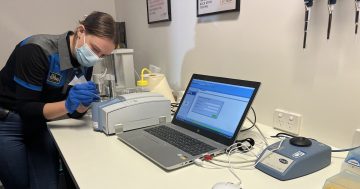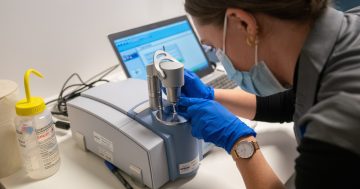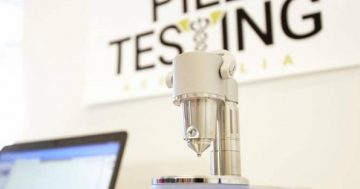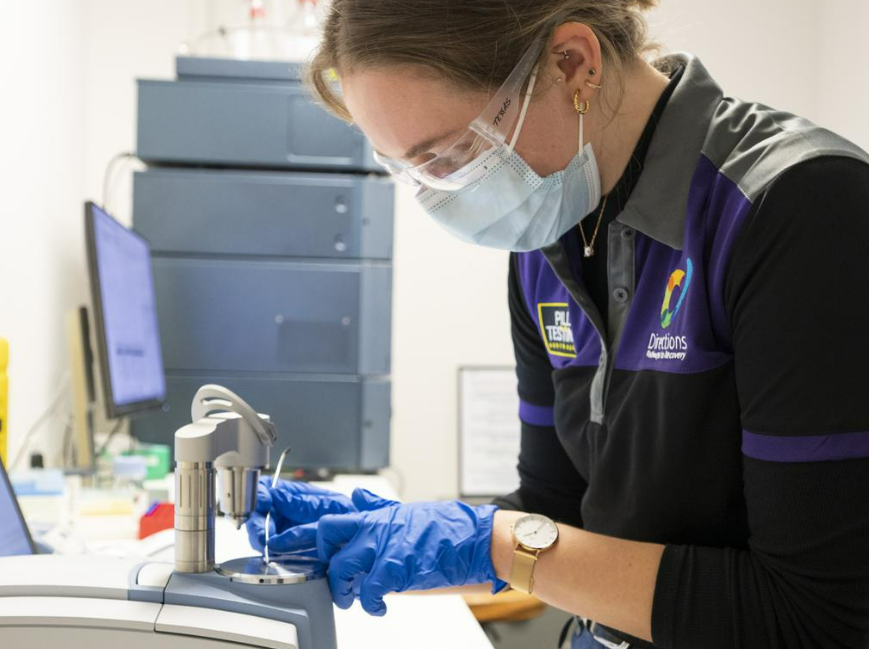
People are asked only to bring in a small amount of the substance for testing at the free and confidential service. Photo: CanTEST.
An evaluation report into Australia’s first fixed-site pill testing facility has revealed an overwhelmingly positive response from the community, with the majority of clients reporting that they would recommend the service to others.
ACT Health Minister Rachel Stephen-Smith released the CanTEST Health and Drug Checking Service Program Evaluation: Final Report on Monday (17 July). The report stated that over two-thirds of clients who used the drug checking and pill testing service had never previously sought information or advice from a healthcare worker about their drug use.
Between the facility’s opening on 21 July 2022 and 20 January 2023 there were 498 visitors to the service, and within its first year it has tested more than 1000 samples. Of those 1000 samples, more than 10 per cent were voluntarily discarded following the testing process.
CanTEST has also contributed to information about the types of drugs circulating in Canberra, allowing healthcare services to respond to potentially dangerous substances earlier.
“We know the safest option is not to take drugs and this will always be our advice to the community. However, we recognise there is also a need for initiatives that reduce the harms for people who still choose to use drugs,” Minister Stephen-Smith said.
The ACT Government has included $1.2 million for CanTEST in the 2023-24 Budget to extend the service’s operation until December 2024, in response to the positive feedback and community support it has received.
Minister Stephen-Smith said the funding will help ensure the service model remains sustainable in the longer term and enable the ACT Government to consider the recommendations of the evaluation.
CanTEST is operated by Directions Health Services in partnership with Pill Testing Australia and the Canberra Alliance for Harm Minimisation and Advocacy (CAHMA), and funded by ACT Health.
According to the evaluation report, there were unexpected costs of more time required in planning and implementing the service, along with setting up its equipment. However, these additional costs were met by the ACT Government, ACT Government Analytical Laboratory and the coalition of organisations running the service.
The report’s recommendations to improve CanTEST detailed a desire to expand the service’s opening times from its current six hours across Thursday and Friday, along with more analytical chemists and increased surge capacity to handle large events. The week of Spilt Milk recorded 62 visitors, which is a considerable jump from its average of 15.
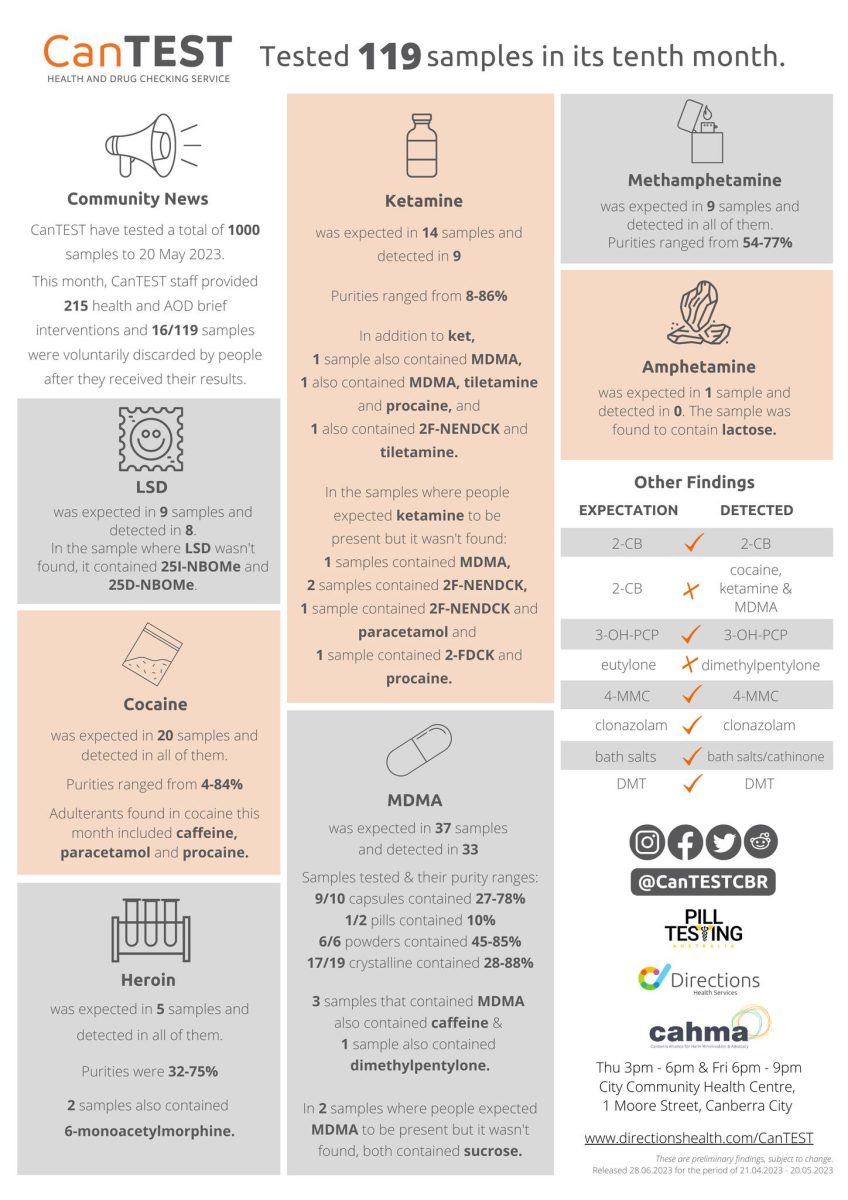
CanTEST’s most recent monthly summary. Photo: CanTEST.
According to the evaluation report, half of the drugs tested contained an unknown substance, and 10 per cent of tests led to the individual discarding the drug. Clients were also less likely to take the drug if testing revealed it contained an unexpected substance.
“We also know that young people attending CanTEST communicate the advice they receive to their peers, and when unexpected results were found, 32% said they would not take the substance,” Directions Health CEO Bronwyn Hendry said.
Directions COO Stephanie Stephens said the most consistent drugs to contain untrustworthy substances were ketamine and cocaine.
When CanTEST is not able to identify what the substance is, it is sent to be tested at the ANU using more sophisticated equipment. If the substance is found to be particularly lethal, CanTEST informs ACT Health, which can then deliver a public health alert if required.
Regardless of ACT Health’s decision, CanTEST releases this information to the public, and did so two weeks ago after finding three unknown samples, as Ms Stephens explained.
CanTEST advises users to call 000 if they suspect someone has overdosed, and use naloxone if they have it.
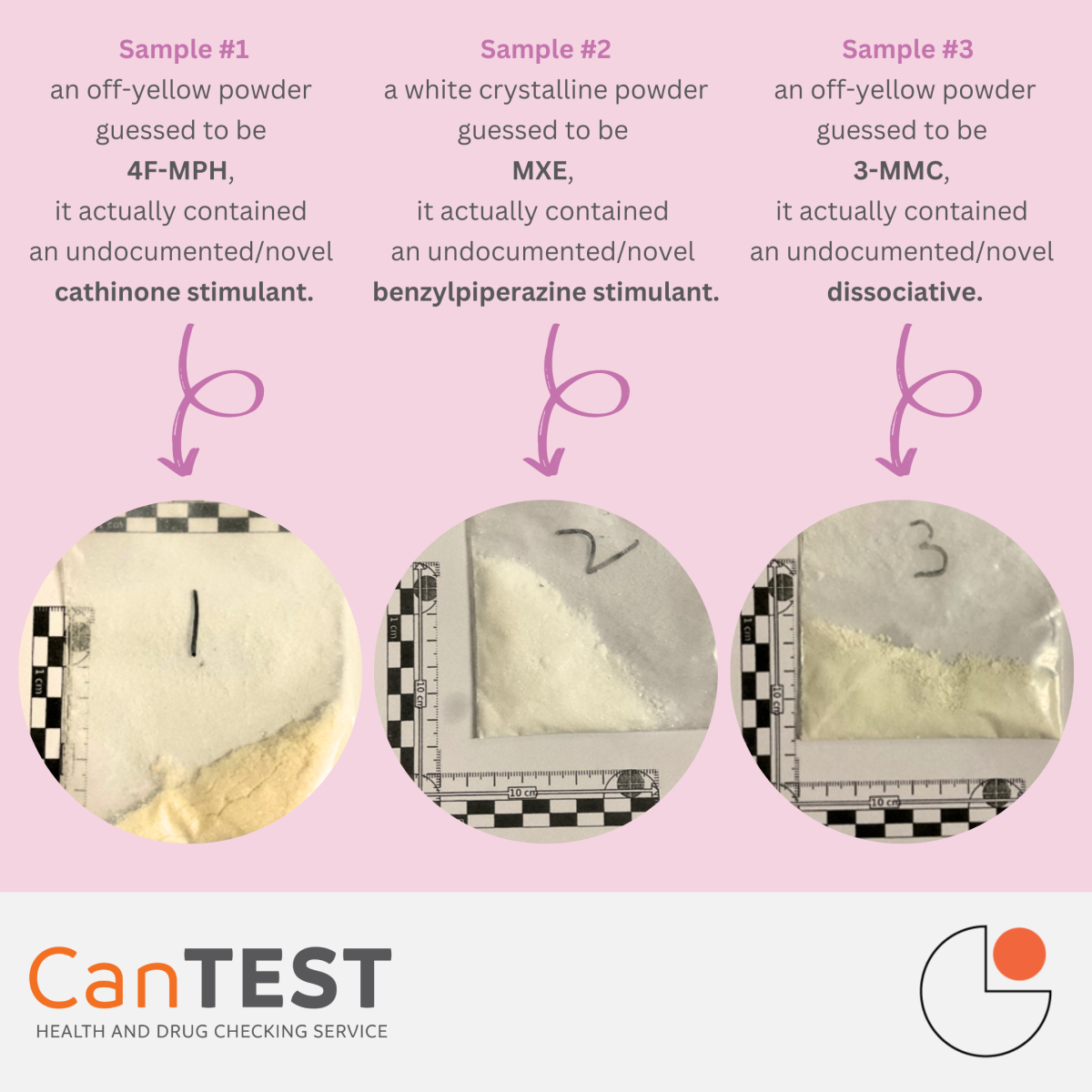
A fact sheet of the unknown substances recently identified by CanTEST. Photo: CanTEST.
Since it first opened, CanTEST has delivered over 1400 health and alcohol and drug interventions, with some clients receiving multiple interventions during the same visit.
According to the service’s most recent monthly summary, 215 interventions were delivered. Ms Hendry said CanTEST has seen an increase in the number of opioid users attending the service for these interventions, which she credits to the improvement in community trust and awareness.
The Australian Criminal Intelligence Commission and AAP’s recent national wastewater drug monitoring report said the ACT had the second highest rates of heroin and oxycodone use of any jurisdiction in the country.
CanTEST advises opioid users to have naloxone on standby in case of an overdose. They can retrieve these from their service and the Needle and Syringe Program, which are both in the same building.












